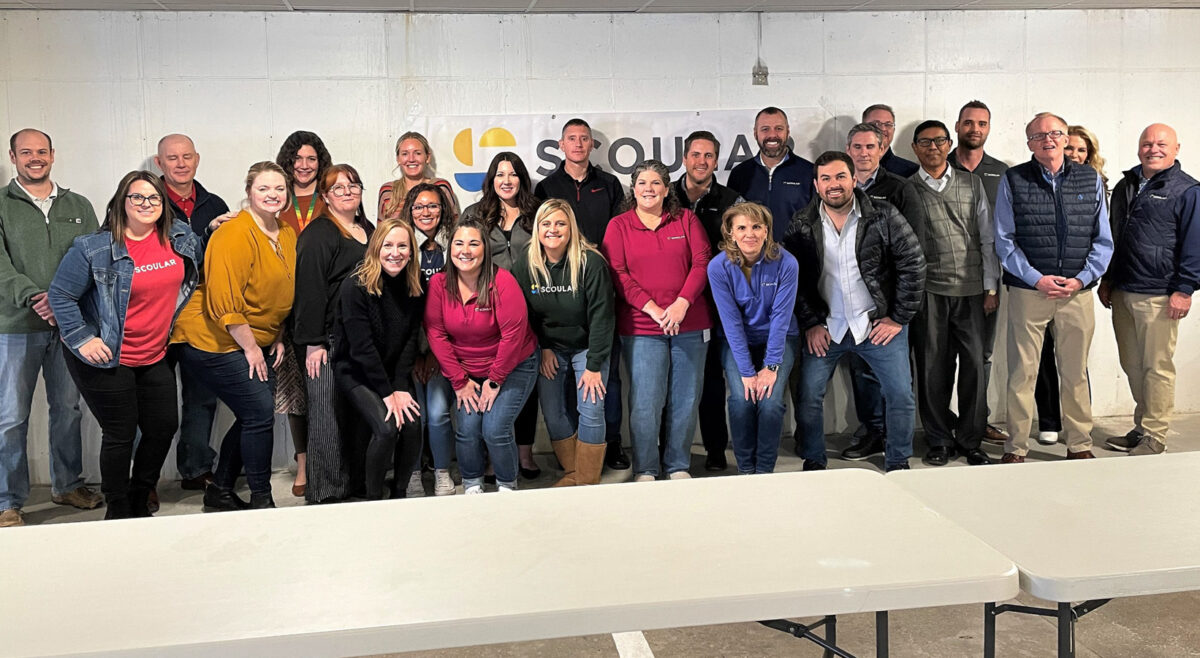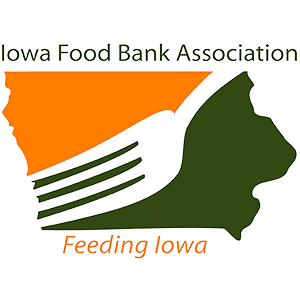Photo: CEO Paul Maass (far right) with employees during their volunteer service at Scoular.
The Scoular Company—based in Omaha—is dedicated to the buying, selling, storage, handling and processing of grain, feed, and food ingredients. In addition to providing reliable and diverse supply chain solutions, Scoular leaders are adamant about enriching the communities they live and work in through philanthropy. Over twenty-five years ago, Scoular began supporting Food Bank for the Heartland. Since then, their involvement has only increased.
“When you think about where to get involved, we’re in the food and agriculture industry, and the purpose of agriculture is producing food and feeding the world. So, it’s a natural correlation to our business and the responsibilities we have to support the Food Bank and do what we can to fight hunger,” said Scoular CEO Paul Maass.
But Paul says it was the pandemic that inspired the team to do more. “There was so much change happening, and new needs were emerging rapidly. We thought about students, where an important element for them was getting proper nutrition. And if they’re not at school what’s happening? We had a lot of questions, and everything pointed towards the Food Bank.”
To help, Scoular decided to take a favorite holiday activity and turn it on its head. “It was very traditional for us to celebrate employees during the holidays with expensive entertainment. And at the same time, we’ve seen how much our people love giving back. So, we decided to spare the expenses of a holiday party and volunteer together instead.”
Last year, employees spent an afternoon packing BackPack meals at their facility—providing 2,680 weekend meals for elementary students. “The feedback we received was so overwhelmingly positive. To see and hear that this is what’s most important to our team was so encouraging as a leader.”
Paul says involvement with the Food Bank has also opened his eyes to the reasons behind the increased demand. “It can be hard to understand on the surface. Unemployment is extremely low. You compare that to the Great Depression when there weren’t jobs, and it was logical that there was a significant need for food. Today, there’s full employment and you think, ‘how can the need be so great?’ but there are so many complexities now that are different from our past. The reality is, people are working, but that income just isn’t enough to provide for their household. As you learn more about that, it becomes easier to understand.”
Scoular remains dedicated to supporting the Food Bank in any way they can. “We realize how many people are relying on the Food Bank. To execute, you must have the support of businesses and people in the community—whether it’s volunteering, contributing financially or just being passionate advocates for everything you do—we want the Food Bank to know they can count on us.”
Paul adds that being part of a team committed to making a difference is what makes him most proud. “I believe in the importance of giving back. I’m fortunate in many ways. But there are people across our community living paycheck to paycheck and there isn’t a cushion—so if something happens in their life—they need help. For those up against a bad time, it’s great to offer a helping hand.”






